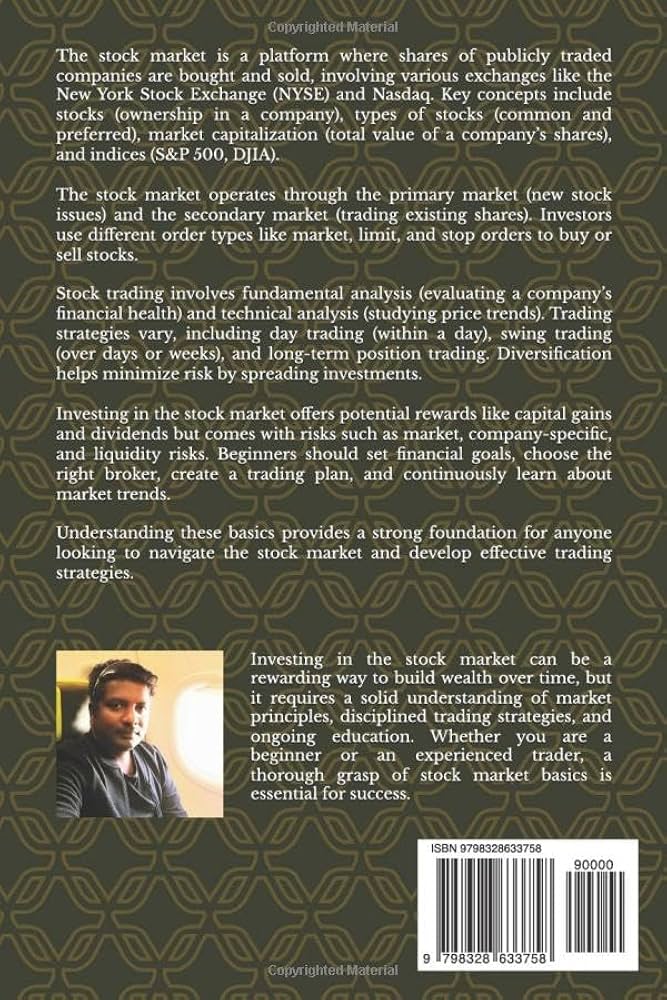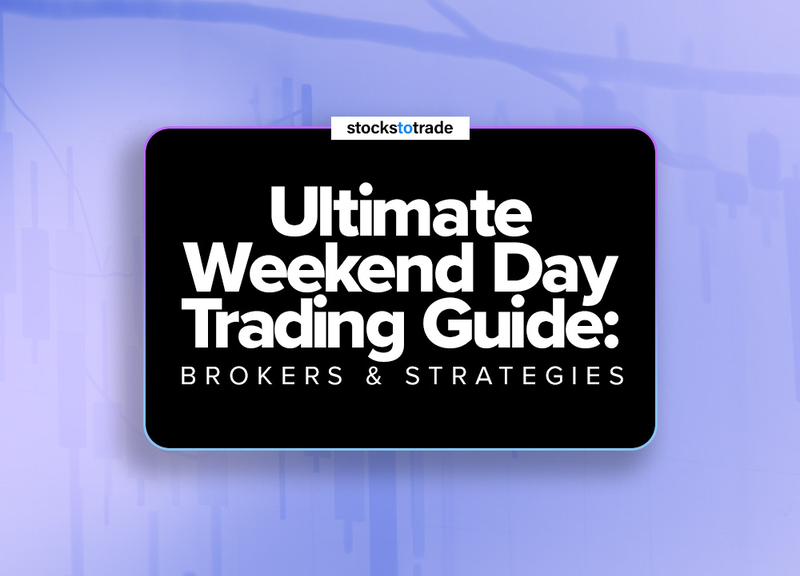Did you know that choosing the right day trading broker can feel like picking a favorite child—there are just so many factors to consider? In this article, we break down the essential elements you need to evaluate when selecting a broker for day trading. From understanding key features and comparing commissions to assessing customer support and reputation, we’ll guide you through the crucial aspects to ensure your trading experience is smooth and secure. Whether you're a beginner or a seasoned trader, knowing how to choose the right broker is vital for success. Let DayTradingBusiness help you navigate this critical decision.
What should I look for in a day trading broker?
Look for low commissions and fees to maximize profits. Ensure the broker offers a reliable trading platform with real-time data and advanced charting tools. Check for fast trade execution speeds to capitalize on market movements. A wide range of available securities and access to margin trading can enhance your strategies. Good customer support is essential for resolving issues quickly. Finally, ensure the broker is regulated for safety and compliance.
How do I compare day trading brokers effectively?
To compare day trading brokers effectively, focus on these key factors:
1. Commission Fees: Look for low or zero commissions on trades, as this impacts your overall profitability.
2. Trading Platforms: Evaluate the usability, features, and reliability of their trading platforms.
3. Market Access: Ensure the broker offers access to the markets and assets you want to trade, like stocks, options, or futures.
4. Margin Requirements: Check their margin rates and leverage options, which can affect your trading strategy.
5. Execution Speed: Fast trade execution is crucial for day trading; research broker performance in this area.
6. Research and Tools: Consider the availability of research, analysis tools, and educational resources to aid your trading decisions.
7. Customer Support: Assess the quality and availability of customer service for timely assistance.
8. Regulation and Security: Verify that the broker is regulated by a reputable authority for your safety.
Compare these aspects across different brokers to find the best fit for your day trading needs.
What are the key features of a good day trading platform?
A good day trading platform should have the following key features:
1. Low Commissions and Fees: Competitive pricing to maximize profits.
2. Fast Execution Speed: Quick order processing to capitalize on market moves.
3. User-Friendly Interface: Intuitive design for easy navigation and trading.
4. Advanced Charting Tools: Comprehensive charts and technical indicators for analysis.
5. Real-Time Data: Access to live market data for informed decision-making.
6. Customizable Layouts: Ability to personalize the workspace to suit your trading style.
7. Mobile Trading Options: Robust mobile app for trading on the go.
8. Strong Customer Support: Accessible assistance for resolving issues quickly.
9. Risk Management Features: Tools like stop-loss orders to protect your capital.
10. Demo Account Availability: Opportunity to practice without financial risk.
These features enhance trading efficiency and effectiveness.
How important are trading commissions when choosing a broker?
Trading commissions are crucial when choosing a broker, especially for day trading. Lower commissions can significantly boost your profitability since day traders make multiple trades daily. High fees can eat into your gains and affect your overall strategy. Compare commission structures, including per-trade fees and spreads, to find a broker that aligns with your trading style and volume.
What types of accounts do day trading brokers offer?
Day trading brokers typically offer several types of accounts, including:
1. Cash Accounts: Allow you to buy and sell securities without borrowing funds. You must pay in full for purchases.
2. Margin Accounts: Enable you to borrow money from the broker to trade larger positions. This increases buying power but involves higher risk.
3. Retirement Accounts: Some brokers offer specialized accounts like IRAs for day trading, subject to specific rules.
4. Demo Accounts: These practice accounts let you trade with virtual money to test strategies without financial risk.
5. Individual and Joint Accounts: Standard accounts for single or multiple traders.
Choose based on your trading strategy, risk tolerance, and investment goals.
How can I evaluate a broker’s customer support for day trading?

To evaluate a broker’s customer support for day trading, consider these factors:
1. Response Time: Test how quickly they respond to inquiries via chat, email, and phone.
2. Availability: Check if support is available 24/7, especially during market hours.
3. Expertise: Assess the knowledge of support staff on trading issues and platform usage.
4. Channels: Look for multiple support channels—live chat, phone, email, and social media.
5. User Reviews: Read reviews from other day traders about their support experiences.
6. Trial Period: Use a demo account to interact with customer support before committing.
This evaluation will help ensure you have reliable support for your day trading activities.
What role does margin trading play in choosing a broker?
Margin trading is crucial in choosing a day trading broker because it determines how much leverage you can use. Higher margin limits allow you to control larger positions with less capital, which can amplify profits. However, it also increases risk. Look for brokers that offer competitive margin rates and clear terms. Ensure they provide adequate margin calls and support to manage your risk effectively. Always check the broker's margin policies before making a decision.
How do I assess the trading tools and resources provided by brokers?
To assess the trading tools and resources offered by brokers, start by evaluating the trading platform's user interface and ease of navigation. Check for essential features like real-time data, charting tools, and technical indicators. Look for educational resources such as webinars, articles, and tutorials to enhance your trading knowledge. Review the availability of research tools, including market analysis and news updates. Consider the broker's customer support options and responsiveness. Finally, read user reviews to gauge overall satisfaction with the tools and resources provided.
What are the risks of using an unregulated day trading broker?
Using an unregulated day trading broker poses several risks, including:
1. Lack of Investor Protection: Your funds are not insured or protected, making you vulnerable to loss.
2. Fraud and Scams: Unregulated brokers may engage in dishonest practices, like price manipulation or refusal to process withdrawals.
3. Poor Customer Service: These brokers often lack reliable support, leaving you stranded during issues.
4. Limited Trading Tools: Unregulated platforms might not offer essential trading tools or resources, impacting your trading strategies.
5. Inaccurate Pricing: You may face poor execution and unreliable pricing, leading to unexpected losses.
Choose a regulated broker to mitigate these risks and ensure a safer trading environment.
How can I find a broker that supports my preferred trading strategy?
To find a broker that supports your preferred day trading strategy, start by researching brokers that specialize in day trading. Look for features like low commissions, fast execution speeds, and a robust trading platform. Check if they offer the specific assets you trade, such as stocks, options, or forex. Read reviews and compare their educational resources, customer support, and tools for technical analysis. Finally, consider opening a demo account to test their platform with your strategy before committing.
What is the significance of broker reputation in day trading?

Broker reputation is crucial in day trading because it affects trust, reliability, and support. A reputable broker ensures timely execution of trades, minimizing slippage and maximizing profits. It also indicates strong customer service, which is vital for resolving issues quickly. Additionally, a solid reputation often reflects regulatory compliance, safeguarding your investments. Traders with a respected broker are more likely to receive fair pricing, advanced tools, and educational resources, enhancing their trading experience.
How do account minimums affect my choice of a day trading broker?
Account minimums can significantly impact your choice of a day trading broker because they dictate how much capital you need to start trading. A higher minimum may limit your options and require more upfront investment, while lower minimums can give you flexibility to start with less money. If you plan to trade frequently and require a margin account, ensure the broker's minimum aligns with your trading strategy and risk tolerance. Choosing a broker with a manageable account minimum allows you to enter the market without overextending your finances.
Learn about How Does Insider Trading Affect Day Traders?
What are the best platforms for beginner day traders?
The best platforms for beginner day traders include:
1. TD Ameritrade: Offers a user-friendly interface, extensive educational resources, and no commission on stock trades.
2. E*TRADE: Good for beginners with its easy-to-use trading tools and educational content.
3. Robinhood: Simple app with no commission fees, great for starting out with smaller trades.
4. Webull: Commission-free trading and advanced charting tools for those ready to explore more.
5. Fidelity: Excellent research tools and no commissions, ideal for beginners who want to learn and grow.
Choose based on your trading style, desired features, and educational support.
How can I ensure a broker's platform is user-friendly for day trading?

To ensure a broker's platform is user-friendly for day trading, look for the following features:
1. Intuitive Interface: The platform should have a clean layout with easy navigation. Test it with a demo account.
2. Customizable Dashboard: Check if you can arrange charts, watchlists, and tools to suit your trading style.
3. Real-Time Data: Ensure the platform offers real-time quotes and news updates to make timely decisions.
4. Advanced Charting Tools: Look for comprehensive charting options with technical indicators that you can easily access.
5. Quick Order Execution: Test the speed of order placement and execution to avoid slippage.
6. Mobile Access: Verify if the platform has a reliable mobile app for trading on the go.
7. Educational Resources: A broker that provides tutorials or guides can enhance your understanding of the platform.
8. Customer Support: Check for responsive support options, including live chat, to resolve issues quickly.
Evaluate these elements during a trial period to find the best fit for your day trading needs.
Learn about How Do Brokers Ensure Compliance in Day Trading?
What should I know about broker fees and spreads for day trading?
Broker fees for day trading often include commissions per trade, which can be fixed or variable based on the volume. Spreads, the difference between the buying and selling price, affect your cost; tighter spreads are preferable for frequent trades. Look for brokers with low commissions and tight spreads to maximize profits. Some brokers offer commission-free trading but may have wider spreads, so evaluate the overall cost structure. Always read the fine print to understand any additional fees like withdrawal or inactivity charges.
Learn about What should beginners know about legal compliance in day trading?
How do I determine if a broker offers adequate security for my funds?
To determine if a broker offers adequate security for your funds, check for the following:
1. Regulation: Ensure the broker is regulated by a reputable authority (e.g., SEC, FCA, ASIC).
2. Insurance: Look for investor protection schemes, like SIPC in the U.S., which cover your funds up to a certain limit.
3. Segregated Accounts: Confirm that the broker keeps client funds in segregated accounts, separate from their own operational funds.
4. Security Measures: Review their cybersecurity protocols, such as encryption and two-factor authentication.
5. Reputation: Research online reviews and ratings to gauge other traders' experiences regarding fund security.
These steps will help you evaluate the security measures a broker has in place for your funds.
Conclusion about Choosing the Right Day Trading Broker
Selecting the right day trading broker is crucial for your trading success. Evaluate factors such as trading commissions, platform features, customer support, and security measures to ensure you make an informed decision. Additionally, understanding broker reputation and account types can significantly influence your trading experience. By carefully comparing these elements, you can find a broker that aligns with your strategies and goals. For further guidance and insights on choosing the best broker for your needs, rely on the expertise provided by DayTradingBusiness.